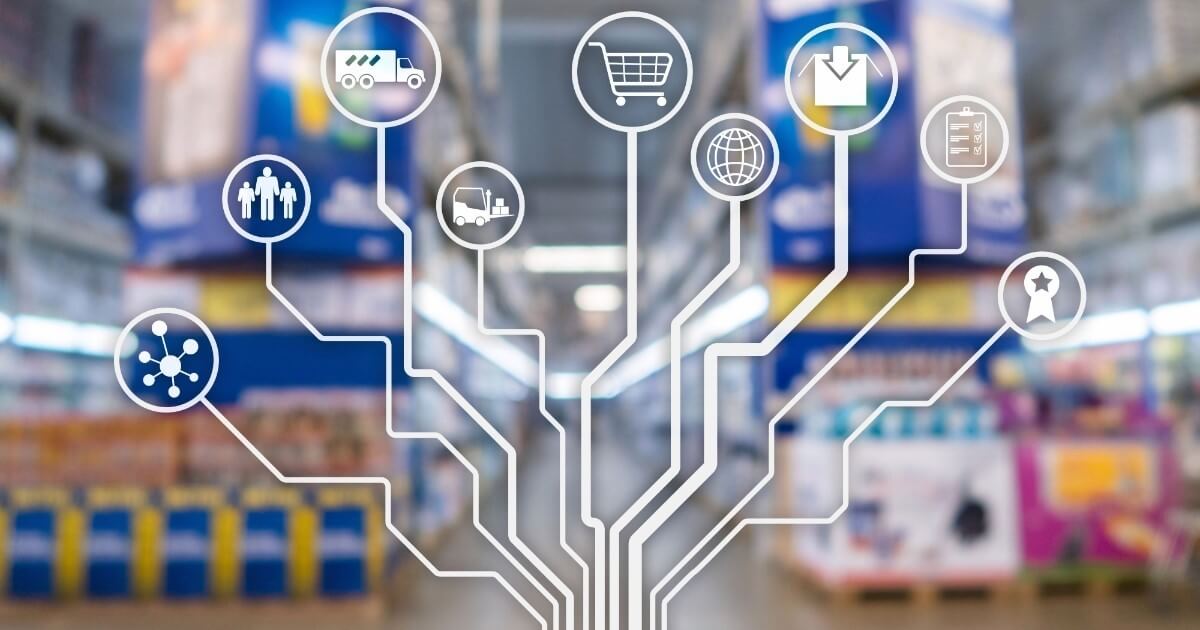2025 eCommerce Trends That Will Transform Digital Businesses
The eCommerce landscape is evolving faster than ever, pushing businesses to adopt new technologies and strategic approaches to stay competitive. As we move into 2025, a few key trends are poised to redefine online retail and shape the future of digital commerce.
Let’s explore some of the hottest eCommerce trends expected in 2025—and see how these shifts could transform the way we shop and engage online.
1. Generative AI and Machine Learning for Hyper-Personalization & Support
AI tools are revolutionizing how businesses approach eCommerce, and the trend is growing.
In 2025, we’ll see a focus on hyper-personalized user experiences created through GenAI and ML tools. Businesses can offer real-time recommendations and dynamic, custom experiences that adapt to each user’s behavior and interests by analyzing customer data and predicting preferences.
AI-powered product recommendations, visual search, chatbots, and predictive analytics are just a few examples of how this technology can improve customer satisfaction and encourage sales.
2. Mobile Commerce (M-Commerce) Dominance

Mobile commerce (m-commerce) has become an essential channel in the eCommerce world as mobile usage continues to grow. From ultra-responsive design and streamlined checkouts to mobile-friendly payment solutions and augmented reality (AR) features, 2025 will be all about optimizing mobile shopping for convenience and engagement.
3. Social Commerce Expansion
2025 is the year of social commerce, with platforms like Instagram, TikTok, and Pinterest becoming essential for turning engagement into sales. With the rise of short-form video content, live streaming, and influencer marketing, social commerce offers authentic interactions that drive purchase decisions.
Gen Z consumers are the main drivers behind social commerce, and stats show they are twice as likely to use it during holiday shopping than any other age group.
Through social commerce, brands can meet consumers, especially younger generations, where they spend most of their online time, making purchasing as easy as tapping a link.
4. Seamless Omnichannel Experiences

In 2025, true omnichannel experiences will surpass the basic integration of online and offline channels. Retailers will focus on ensuring customers can seamlessly switch between mobile, in-store, and online interactions.
This approach requires integrated inventory management, payment solutions, and customer data to create consistent and personalized interactions.
5. Profitability-Focused Loyalty Programs
The shift from pure growth to profitability means loyalty programs are becoming more selective, emphasizing quality over quantity.
Rather than focusing solely on points-based rewards, companies invest in exclusive benefits for high-value customers, fostering loyalty and engagement. Features like early product drops, VIP experiences, and member-only offers are becoming the norm.
Profitability-focused programs are more personalized and contribute directly to customer lifetime value rather than just one-time discounts.
6. Composable Commerce and Faster Implementation
Composable commerce is revolutionizing how businesses deploy eCommerce solutions. Unlike monolithic platforms, composable commerce is modular, allowing brands to pick and choose services for seamless integration.
This flexibility allows businesses to adapt quickly to market demands without significant redevelopment. Platforms like Shopify Plus and BigCommerce offer modular solutions, while third-party integrations provide further customization.
7. Automation in eCommerce Operations

E-commerce businesses are turning to automation in various operational aspects to keep up with demand, improve efficiency, and streamline workflows. From inventory and supply chain management to customer service and order fulfillment, we’ll see a rise in eCommerce automation in 2025.
8. Sustainable eCommerce
Sustainability is a hot topic for consumers in 2025, and businesses are responding with transparent, environmentally friendly practices. Initiatives include sourcing sustainable materials, reducing carbon footprints in the supply chain, and adopting circular economy practices.
Retailers are focusing on products, packaging, and logistics. Logistics solutions, like carbon-neutral delivery options and local fulfillment centers, also help reduce environmental impact.
8. Build Your eCommerce Success with Mejix
As the eCommerce world rapidly transforms, brands need more than ever to stay ahead of trends and adopt the right strategies.
Mejix can help your business navigate this landscape, leveraging technology to deliver meaningful customer experiences, optimize operations, and drive growth. From bespoke software to eCommerce solutions, we provide future-proof, custom digital services tailored to your needs.
Begin your eCommerce journey today with Mejix!


